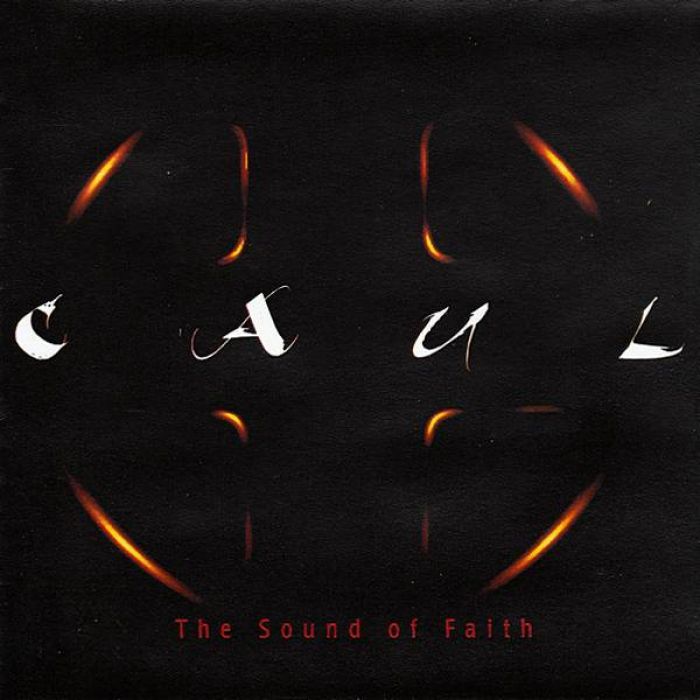The Sound of Faith by Caul (Review)

Caul is a solo dark-ambient project out of Kansas City and The Sound of Faith is his second album. From what I had read of his work, I was prepared for something along the lines of B. Lustmord’s work. Caul is similar in tone, but far more, dare I say, melodic and musical than anything I’ve heard by Lustmord. But Brett Smith (the man behind Caul) certainly explores the same dark, forbidding terrain that Lustmord and other similar dark-ambient artists do.
There’s a surprising amount of variety on this album. The opening track, “Kyrie” is full of deep, cavernous drones set against sparkling chimes, with occasional echoing percussion filling your headphones (the only way to really listen to this album). “Somnia A Deo Missa” is based upon a very driving drum and acoustic guitar, while ghostly guitars and sounds linger around. It could be the score to a very dark western movie full of the simmering heat of the desert, circling vultures, and dark wastelands.
“Metempsychosis” reminds me of the layer of Hell in Dante’s “Inferno” where those condemned of the sins of lust are forced to spend eternity in a whirlwind. Eerie, disembodied voices swirl about as chains and metal are dragged about; in the background, the monstrous explosions and footsteps mix with dark monk chants. “The Type and Shadow of Our Bodies” is the complete opposite of “Metempsychosis” and is probably my favorite track on the album. A beautiful choir of angelic, ghostly voices fill your ears as the piano plays a slow, dignified funeral dirge. A beautiful track to be played in cathedrals.
“Ankou” starts off with these distant, echoing footsteps, like explosions. More clouds of noise and disembodied voices circle about, and synths chime in and out. It finally coalesces into a very dirge-like tune, as church-bells clang all about and the electronics spiral down and down into some unknown abyss. Or maybe it’s the aural equivalent of an H.P. Lovecraft novel; for some reason this music kept coming to mind while I was reading “The Dunwich Horror.” All the while, those echoing footsteps just seem to get closer and closer, without actually doing so. Towards the end, the sound changes abruptly. Gone are the ominous footsteps; in their place are singing doves. Beautiful, yet simple synth work and ethnic-sounding melodies replace the swirling chants and bodiless spirits.
“A Golden Bell and A Pomegranate” is probably the brightest track on the album. More beautiful synth and electronic work. A song full of redemption and grace, maybe? I could listen to a whole album of this. Reminds me of some of Steve Scott’s ambient, instrumental work. Another “cathedral” track. But lest you think you’re completely free from the blackness, the album concludes with “The Seven Abominations of the Heart,” a return to the dark, oppressive soundscapes that fill up most of this album. “The Seven Abominations…” consists of pulsing droning loops and barely audible chimes. Over the loops is more dark electronic work. This track is much more subdued than a lot of the other stuff on this album, but it slowly builds and grows as the track moves on.
This disc was a lot to take in, and at times, I found some of music to drag on, especially some of the opening tracks, like “Nature and Grace.” I still haven’t made up my mind totally: I’m not quite sure if this album is one of the best albums I own or one that simply could have been. But tracks like “Metempsychosis,” “The Type and Shadow of Our Bodies” and “A Golden Bell and A Pomegranate” prove that this album has more than enough great material. This was quite a hard review to write, because this album really threw me off. It wasn’t at all like I expected, but maybe in the end, that’s what makes me continue to listen to it.